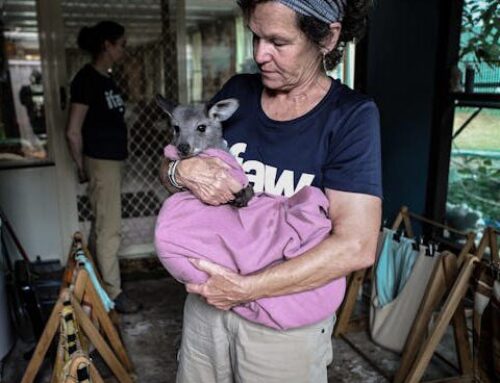Aging with dignity has been a recent topic of interest, especially among our rapidly aging population. Most of us can agree dignified aging should be considered a basic human right, yet there are still many Americans who feel they are denied this “right.” This begs the question – why? If the majority of us want our aging loved ones to live out the remainder of their lives with the dignity and respect they deserve, why is it so unattainable?
What Are The Challenges?
There are many ideas as to why our older loved ones are denied the right to age with dignity, but the truth is, dignified aging is multifaceted and far more complicated than it appears. Beneath the surface, there are numerous factors that challenge its attainability. Here are a few.
The Rapidly Growing Aging Population
One of the most significant barriers to aging with dignity is the rapidly aging population itself. We currently have more senior citizens than we’ve had in the history of our country. Regardless of how grateful we are to see our loved ones living longer than we ever thought they would, this gift didn’t come without a price.
By extending our lives, we created an imbalance. There are now more people in need of care than there are people who are able to provide the care. Without having access to adequate care, it’s difficult for older adults to maintain their health, therefore challenging their dignity. If we want our loved ones to age with dignity, we first need to ensure they can be properly cared for.
Inadequate Healthcare System
In addition to an increase in the ratio of caregivers to care-providers, many Americans feel the challenge is the result of an inadequate healthcare system; and they aren’t entirely wrong.
Aside from obvious issues such the cost of care and health insurance, many older adults have felt their dignity was challenged when they became patients at medical facilities such as doctor’s offices and nursing homes. Being treated as another patient in a gown as opposed to an individual can be a huge insult to a person’s dignity.
The Cost of Living
Alongside a rapidly aging population and a flawed healthcare system, the cost of living also plays a major role. Not only are our aging loved ones living longer than we thought they would, they are also living longer than they budgeted for.
On top of the need to extend their retirement fund for longer than expected, many retired adults encounter non-planned issues that can quickly drain their savings account. Health issues, medical expenses, home repairs, and assisted living facilities are just a few of these issues. There aren’t many things that can challenge your aging loved one’s dignity like losing their ability to support themselves.
What is Dignity?
With the majority of us in support of aging with dignity, we must all be on the same page as to what that means, right? Not necessarily.
In fact, this discrepancy presents one of the biggest challenges in attaining dignified aging for our aging population – t dignity, in and of itself, is subjective. So even though the majority of us can agree that everyone should have the right to age with dignity, the way we interpret that isn’t so black and white.
The dictionary’s definition does very little to help us out; it defines dignity as, “the quality of a person that makes him or her deserving of respect, sometimes shown in behavior or appearance.” This leaves many of us feeling like we had a better understanding of what it means to age with dignity before reading the definition.
With so much left open to interpretation, the definition of dignity varies between different cultures, societies and even among individuals. As a result, the way we define dignified aging is going to vary, and the truth is that this is unlikely to change.
This leads us to wonder; can we make dignified aging attainable for our senior loved ones without a universal consensus of what aging with dignity entails?
Although we all have our own vision of what dignified aging looks like for us, there are a few common beliefs that can help us paint a better picture.
Aging with dignity is about…
…being treated with respect.
According to Hicks Ph.D., an expert on the topic of dignity, many people mistakenly interchange dignity with respect. But the two are not one of the same. “Dignity is our inherent value and worth as human beings; everyone is born with dignity,” says Hicks. While we do agree, dignity is not equivalent to respect, we do feel respect is a critical component.
…being acknowledged as an individual.
In order for our aging loved ones to feel dignified, they need to be treated like an individual. They are not a number nor a patient in a gown. They are individuals with their own beliefs, styles, and experiences. Their individualism needs to be acknowledged.
…having a say in every decision regarding your life.
Aging adults should always have the final say where and how they live out the remainder of their years. Regardless if they want to age in their home or in an assisted living facility, it is ultimately their decision.
…feeling safe in your environment.
Regardless of where your loved one decides to live, shop, or seek healthcare, they deserve to feel a sense of security. They should never have to question the state of their safety or wonder if the level of care they are being provided is sufficient.
So we ask again, can we make dignified aging attainable for our senior loved ones without a universal agreement as to what aging with dignity entails?
We say yes. Fortunately, the above goals can be achieved in ways that look different for every individual, and that leave room for their subjective interpretations of what maintaining dignity entails.
The Truth About Aging with Dignity
Our rapidly aging population, failing healthcare system, and high cost of living all challenge our ability to age with dignity, there is one factor we often fail to account for; ourselves.
The biggest reason we are failing to age with dignity is we are failing to take the initiative to do so.
Dignity is personal. What it means to age with dignity doesn’t need to be defined by our society, it needs to be defined by you, as an individual.
To define what aging with dignity means to you, think about the following questions.
- What are your values?
- How do you define yourself?
- What are the things that are most important to you?
- What are the activities you love to do?
- Who do you want to spend your time with?
- What are your beliefs? Passions?
- Where do you want to live?
The best way to help ensure aging with dignity is attainable for you and your family member, you not only need to define it, but you need to plan for it. But equally important, encourage your loved ones to do the same.
“The key to taking responsibility and initiative, deciding what your life is about and prioritizing your life around the most important things.”
-Stephen Covey
“What Does it Mean to Age With Dignity?” Ashley LeVine, Amada Blog Contributor.
Sources: Donna Hicks P.H.D.



